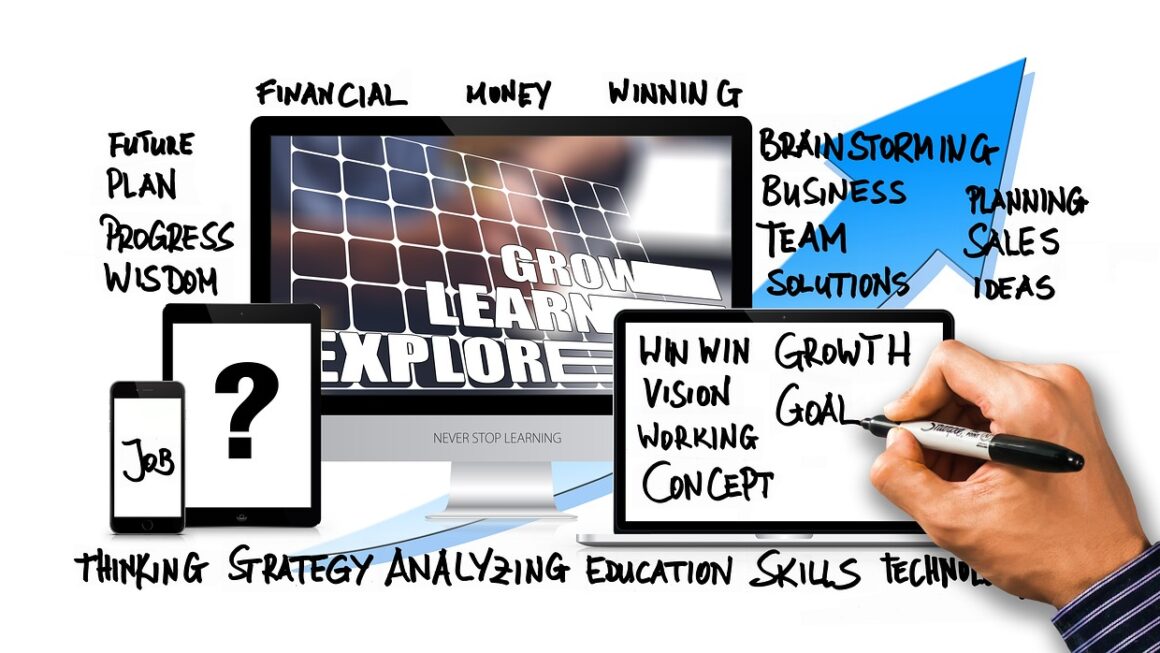Time tracking apps are no longer just for meticulously monitoring employee hours; they’ve evolved into powerful tools that can boost productivity, improve project management, and provide invaluable insights into how we spend our most precious resource: time. Whether you’re a freelancer, a small business owner, or managing a large team, understanding the benefits and choosing the right time tracking app can be a game-changer for your efficiency and profitability.
Why You Need a Time Tracking App
Increased Productivity and Focus
Time tracking apps help you become more aware of how you spend your time, fostering a conscious approach to task management. By tracking your work, you can identify time-wasting activities and make necessary adjustments to improve focus and productivity.
- Improved Focus: Knowing you’re being timed can deter procrastination and encourage concentration on the task at hand.
- Elimination of Distractions: Time tracking data can reveal where your time is being misspent, such as excessive social media use or unnecessary meetings.
- Better Time Estimation: By tracking how long tasks actually take, you can make more accurate estimations for future projects. For example, if you consistently underestimate how long it takes to write a blog post, time tracking data will reveal this and help you adjust your future estimations.
Streamlined Project Management
Effective project management relies on accurate time estimates and efficient resource allocation. Time tracking apps provide the data needed to manage projects effectively, ensuring deadlines are met and resources are optimized.
- Resource Allocation: See where your team’s time is being spent on different projects, allowing you to allocate resources accordingly.
- Project Budgeting: Accurately track labor costs for projects, making it easier to stay within budget and calculate profitability. Many apps allow you to assign hourly rates to employees and automatically calculate project costs based on tracked time.
- Deadline Management: Identify potential bottlenecks and delays by monitoring the time spent on different tasks.
Accurate Billing and Payroll
For freelancers and businesses that bill clients hourly, time tracking ensures accurate and transparent billing. It also simplifies payroll processing by providing precise records of employee work hours.
- Precise Billing: Eliminate guesswork and bill clients for the exact time spent on their projects, fostering trust and transparency. This is especially important for industries where billing disputes are common.
- Simplified Payroll: Automate payroll calculations based on tracked hours, reducing administrative burden and minimizing errors. Integrations with payroll software can further streamline the process.
- Invoice Generation: Many time tracking apps can automatically generate invoices based on tracked time, saving you time and effort.
Data-Driven Decision Making
The data gathered by time tracking apps provides valuable insights into your workflow, team performance, and project profitability, enabling you to make informed decisions that drive efficiency and growth.
- Performance Analysis: Identify high-performing team members and areas where individuals may need additional training or support.
- Profitability Analysis: Determine the true cost of each project and identify which projects are the most profitable.
- Process Optimization: Analyze time tracking data to identify inefficiencies in your workflows and implement process improvements.
Key Features to Look For in a Time Tracking App
Core Tracking Functionality
At its heart, a time tracking app needs to accurately and reliably track time. Look for these essential features:
- Timer-Based Tracking: Start and stop timers to track time spent on specific tasks or projects. The best apps offer both web and mobile interfaces for tracking on the go.
- Manual Time Entry: Allow users to manually enter time in case they forget to start the timer or need to adjust entries. Ensure audit trails are in place for manual entries.
- Project and Task Management: Organize your work by projects and tasks to gain a clear overview of how time is being allocated.
- Offline Tracking: Enable users to track time even without an internet connection, with automatic synchronization when connectivity is restored.
Reporting and Analytics
The power of a time tracking app lies in its ability to generate insightful reports and analytics. Look for:
- Customizable Reports: Generate reports based on various criteria, such as project, task, employee, or date range.
- Real-Time Dashboards: Get a visual overview of current activity, including who is working on what and how much time has been spent.
- Data Export: Export data in various formats (e.g., CSV, Excel) for further analysis or integration with other systems.
- Project Budget vs Actual Time Reports: Easily compare planned time with actual time spent for any project to identify overruns.
Integrations
A time tracking app should integrate seamlessly with other tools you use, such as project management software, accounting software, and CRM systems. Common integrations include:
- Project Management Software (e.g., Asana, Trello, Jira): Sync tasks and projects between the two systems, allowing you to track time directly within your project management workflow.
- Accounting Software (e.g., QuickBooks, Xero): Automatically transfer time tracking data to your accounting system for accurate billing and payroll.
- CRM Systems (e.g., Salesforce, HubSpot): Track time spent on client-related activities and automatically log it in your CRM.
- Calendar Integrations (e.g., Google Calendar, Outlook Calendar): Automatically create time entries based on calendar events.
User-Friendly Interface
A time tracking app should be easy to use and intuitive, regardless of your technical skills. Look for:
- Simple Navigation: The app should be easy to navigate and find the features you need.
- Clean Design: A visually appealing and uncluttered interface can improve user adoption and reduce frustration.
- Mobile Accessibility: A mobile app is essential for tracking time on the go.
- Customizable Settings: The ability to customize the app to your specific needs and preferences.
Popular Time Tracking Apps
Toggl Track
Toggl Track is a popular and user-friendly time tracking app known for its simplicity and affordability. It offers a free plan for individuals and small teams.
- Key Features: Timer-based tracking, manual time entry, project and task management, reporting, integrations with popular apps.
- Pros: Easy to use, affordable, wide range of integrations.
- Cons: Limited features in the free plan.
Clockify
Clockify is a completely free time tracking app that offers a wide range of features without any hidden costs. It’s a great option for individuals and small teams on a tight budget.
- Key Features: Timer-based tracking, manual time entry, project and task management, reporting, team management.
- Pros: Completely free, feature-rich.
- Cons: User interface may not be as polished as some paid apps.
Timely
Timely uses AI to automatically track your time, eliminating the need to manually start and stop timers. It’s a great option for those who want a hands-free time tracking solution.
- Key Features: Automatic time tracking, project and task management, reporting, team management.
- Pros: Hands-free time tracking, accurate time logs.
- Cons: More expensive than some other time tracking apps.
Harvest
Harvest is a comprehensive time tracking and invoicing app designed for freelancers and small businesses. It offers a wide range of features, including time tracking, invoicing, and expense tracking.
- Key Features: Timer-based tracking, invoicing, expense tracking, reporting, project management.
- Pros: All-in-one solution, strong invoicing features.
- Cons: Can be expensive for large teams.
Conclusion
Choosing the right time tracking app can significantly improve your productivity, streamline your project management, and provide valuable insights into your workflow. By considering your specific needs and the features offered by different apps, you can find the perfect tool to help you take control of your time and achieve your goals. Start with a free trial of a few different apps to see which one best fits your workflow and preferences before committing to a paid subscription. Implementing a time tracking app is an investment that can pay off in increased efficiency and better decision-making.




